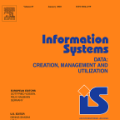With information systems becoming larger scale, recommendation systems are a topic of growing interest in machine learning research and industry. Even though progress on improving model design has been rapid in research, we argue that many advances fail to translate into practice because of two limiting assumptions. First, most approaches focus on a transductive learning setting which cannot handle unseen users or items and second, many existing methods are developed for static settings that cannot incorporate new data as it becomes available. We argue that these are largely impractical assumptions on real-world platforms where new user interactions happen in real time. In this survey paper, we formalize both concepts and contextualize recommender systems work from the last six years. We then discuss why and how future work should move towards inductive learning and incremental updates for recommendation model design and evaluation. In addition, we present best practices and fundamental open challenges for future research.
翻译:随着信息系统规模的扩大,建议系统是人们日益关注机器学习研究和产业的一个专题。尽管改进模型设计的进展在研究中迅速,但我们认为许多进展没有转化为实践,因为有两个限制的假设。首先,大多数方法侧重于无法处理隐蔽用户或项目的感化学习环境,其次,许多现有方法是为静态环境开发的,而这些静态环境在获得新数据时无法纳入。我们争辩说,这些基本上是现实世界平台上的不切实际的假设,在这些平台上,新的用户互动会实时发生。在本调查文件中,我们正式确定了过去六年来的概念和背景化推荐系统的工作。然后我们讨论了为什么以及未来工作应该如何转向感化学习和逐步更新建议模式的设计和评价。此外,我们提出了最佳做法和对未来研究的基本公开挑战。




